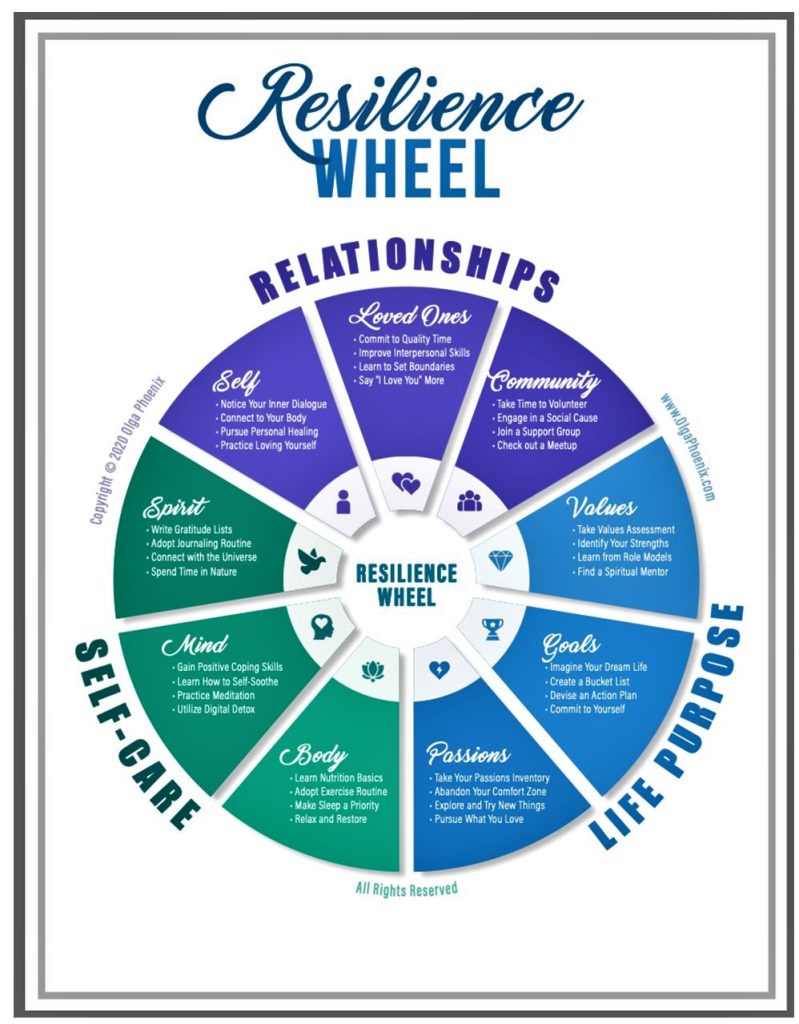What do rubber bands, willow trees, and roly-poly dolls have in common?

Answer: Flexibility under pressure and the capacity to bounce back after stress. In other words: resilience!
The past two years have called for all kinds of resilience from us — as individuals, as couples, as families, as a nation, and as a world. At this point, many of us may in fact be wary of feeling continually stretched in the face of political, economic, climatic, health, and/or relational uncertainty.
We want to honor the resilience that you have shown in the face of the challenges of the past years – whatever those challenges were for you.
Here is a short video to remember that we often mirror the resilience of nature. As you watch it, remember to breathe deeply and let yourself be fully present at this moment to your own resilience.
What is resilience?
Psychologists define resilience as “the developable capacity to rebound or bounce back from adversity, conflict, and failure or even positive events, progress, and increased responsibility” (Luthans, 2002).
Resilience can also include grit, mental toughness, emotional intelligence, humor, and the ability to adapt and find meaning in difficult times.
In April 2020, in response to the stress of the pandemic, author and trainer Olga Phoenix developed the Resilience Wheel, a framework to conceptualize individual resilience that integrates three dimensions:
- Living with Purpose (including Values, Goals, Passions)
- Sustainable Self-Care (including Body, Mind, Spirit)
- Nurturing Relationships (including Self, Loved Ones, Community)

As you study this wheel, consider which areas you have felt alive and engaging in the past year, and which may want new attention and energy now.
How resilient are you relationally?
Resilience is not just an individual phenomenon – it’s also familial and collective. We are not born resilient, but we can cultivate it and learn new skills that help us deepen our relational competency. Together, whether in a community, with family, or in an intimate relationship, we are more resilient.
When I think about resilient couples – couples who know how to weather the storms together successfully over time – they share three characteristics.
- Emotional regulation: they know how to manage their reactivity, co-regulate (soothe each other), and repair after conflict.
- Differentiation: they accept their partner’s otherness and give each other space to have different perspectives, preferences, and needs.
- Connection: they are intentional about nurturing their emotional, intellectual, spiritual, and sexual connection and intimacy.
Relational Resiliency
If you are in a relationship and want to reflect on your resilience together, here are some prompts for inspiration. Take turns sharing and listening attentively.
- One way in which I think we are resilient together is…
- One example of that is…
- Why that matters to me is…
- One way in which I would like us to become more resilient is…
- What I might need to do differently for that to happen is…
- One thing you could do differently to support this growth is…
- Thank you for listening.
Growing our resilience is important for our well-being, but it doesn’t have to feel like work. Instead, it can be connected to our most positive and joyful experiences. As Brené Brown said, “Joy, collected over time, fuels resilience – ensuring we’ll have reservoirs of emotional strength when hard things do happen.”
Read more by Caroline
Contact Caroline


